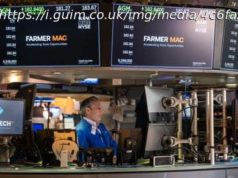Berkshire’s operating earnings for the quarter rose by 18% versus 2020. Its insurance businesses continue to suffer from the impact of the pandemic. Berkshire experienced robust demand for its products, but supply chain disruptions and increased costs conspired to constrain results for the quarter.
Berkshire Hathaway’s (BRK/A, BRK/B) quarterly earnings are worth reading even if you do not own the stock because Berkshire can provide a broad look at the economic and corporate operating environment due to its many diverse businesses. In addition, it is managed by two of the greatest investors and capital allocators of all time. Berkshire bought back a record $7.6 billion of its own stock in the second quarter bringing the year-to-date total to $20.2 billion. Until an announcement in mid-2018, Berkshire had limited repurchases to when the stock was trading at less than 1.2 times price to book (P/B). While that constraint is now relaxed, it is still a good indicator of the general range when aggressive repurchases will likely be seen. Berkshire’s P/B was 1.3 times at the beginning of July and is currently 1.3 times after rising above 1.4 times during the quarter. Berkshire only intends to repurchase shares when the “repurchase price is below Berkshire’s intrinsic value, conservatively determined.” Even though the company is more expensive than in the first quarter of 2021, Berkshire accelerated repurchases in the third quarter. The P/B ratio is used as a proxy for gauging Berkshire’s intrinsic value. Still, Warren Buffett and Charlie Munger’s judgment about its intrinsic value versus other available uses of capital could differ from that simple measure. Berkshire is underperforming the S&P 500 return year-to-date by over two percentage points through November 5, and it declined by -1.8% in the third quarter versus a 2.7% gain for the S&P 500. Berkshire retains a fortress balance sheet with cash and equivalents over $144 billion versus almost $141 billion at the end of June 2021, which provides flexibility to take advantage of opportunities, including repurchasing its own stock. Berkshire has stated that there would be no stock repurchases if it would cause cash levels to fall below $30 billion. Berkshire’s quarterly earnings of over $10 billion fell by a whopping 66% versus the same quarter in 2020. That is essentially a function of lower gains in the investment portfolio since unrealized gains from their portfolio are included in their earnings. Operating earnings, which removes the distortion from market changes and better reflect the firm’s earnings power, for the quarter rose by 18% versus 2020. Providing an illustration of the value from share repurchases, per-share operating income for 3Q rose by 25% versus 2020. A further look into the different operating segments versus the third quarter of 2020 shows the strong rebound in the economically exposed railroad and manufacturing, service, and retailing groups. Notably, the operating income for all significant segments except insurance is above pre-pandemic levels of 2019. Insurance: Investment income was higher relative to the third quarter of 2020. Year-to-date investment income was 5% lower than 2020 and 22% lower than 2019, primarily due to lower income from short-term investments. With interest rates at historic lows and not likely to move higher soon, investment income is expected to remain relatively depressed. After-tax catastrophe losses were $1.7 billion in the third quarter. Geico also suffered higher auto claims and rising claims severity due to the higher valuation of used vehicles.






